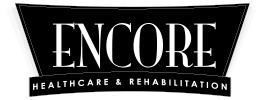POLICY
It is the policy of the company that all employees and any contractors or agents, are educated regarding the federal and state false claims statutes and the role of such laws in preventing and detecting fraud, waste and abuse in federal health care programs.
PROCEDURE
FALSE CLAIMS LAWS
This is the law most often used to bring a case against a healthcare provider for the submission of false claims to a Federal healthcare program. The False Claims Act prohibits knowingly presenting (or causing to be presented) to the Federal Government a false or fraudulent claim for payment or approval. Additionally, it prohibits knowingly making or using (or causing to be made or used) a false record or statement to get a false or fraudulent claim paid or approved by the Federal Government or its agents, like a carrier, other claims processor, or state Medicaid program.
False Claim: A false claim is a claim for payment for services or supplies that were not provided specifically as presented or for which the provider is otherwise not entitled to payment. Examples of false claims for devices or supplies that were not provided specifically as presented include, but are not limited to:
- A claim for a service or supply that was never provided
- A claim for a service that the provider knows is not reasonable and necessary
- A claim for services provided by an unlicensed individual
- A claim indicating a higher level of service that was actually provided
The penalty for violating the False Claims Act is a minimum of $5,500 up to a maximum of $11,000 for each false claim submitted. In addition to the penalty, a provider could be found liable for up to three times the amount unlawfully claimed.
Qui Tam and Whistleblower Protection Provisions
The FCA authorizes the United States Attorney General to bring actions alleging violations of the statute. The statute also authorizes private citizens to file a lawsuit in the name of the United States for false or fraudulent claims submitted by individuals or companies that do business with, or are reimbursed by, the United States. Commonly known as a qui tam action, a lawsuit brought under the FCA by a private citizen begins upon the filing of a civil complaint in federal court, under seal, and service of a disclosure of material evidence on the Attorney General. The government has sixty days to investigate the allegations in the complaint and decide whether it will join the action, in which case the complaint is unsealed, and the Department of Justice or a United States Attorney’s Office takes the lead role in prosecuting the claim. If the government decides not to join, the whistleblower may pursue the action alone, but the government may still join at a later date if it demonstrates good cause for doing so. As an incentive to bring these cases, the Act provides that whistleblowers who file a qui tam action may receive a reward of 15-30% of the monies recovered from the government plus attorneys’ fees and costs. This award may be reduced, however, if for example the court finds the whistleblower planned and initiated the violation. The FCA also provides that “whistleblowers” who prosecute clearly frivolous qui tam claims can be held liable to a defendant for the defendant’s attorneys’ fees and costs.
Whistleblowers are also offered certain protections against retaliation for bringing an action under the Act. Employees who are discharged, demoted, harassed, or confront discrimination in furtherance of such an action or as a consequence of whistleblowing activity are entitled to all relief necessary to make the employee whole. Such relief may include reinstatement, double back pay, and compensation for any special damages including litigation costs and reasonable attorneys’ fees.
ADMINISTRATIVE REMEDIES FOR FALSE CLAIMS AND STATEMENTS
These statutes prohibit any person from knowingly presenting (or causing to be presented) a claim that the person knows or has reason to know is false, fictitious, or fraudulent; includes or is supported by any written statement which asserts a material fact which is false, fictitious, or fraudulent; includes a written statement which omits a material fact which there person has a duty to include and such omission renders the statement false, fictitious, or fraudulent; or is for payment for the provision of property or services which the person has not provided as claimed. They prohibit any person from knowingly presenting (or causing to be presented) a written statement that the person knows or has reason to know asserts a material fact which is false, fictitious, or fraudulent; or omits a material fact which there person has a duty to include, which omission makes the statement false, fictitious, or fraudulent; and the statement contains or is accompanied by an express certification or affirmation of the truthfulness and accuracy of the contents of the statement.
Any person who violates these statues shall be subject to, in addition to any other remedy prescribed by law, a civil penalty of not more than $5,000 for each false claim or statement made. In addition, in the case of a false claim, unless the Government has not made payment on such claim, that person shall also be subject to an assessment, in lieu of damages sustained by the United States because of such claim, of not more than twice the amount of such claim, or portion of such claim.
LOUISIANA PENALTIES FOR FALSE CLAIMS AND STATEMENTS AND WHISTLEBLOWER PROTECTION
Louisiana Medical Assistance Program Integrity Law, La. R.S. 46:437, 1, et seq.
The LMAPIL prohibits the solicitation, receipt, offer or payment of any remuneration including but not limited to kickbacks, bribes, rebates or payments, directly or indirectly, overtly or covertly, in cash or in kind in return for referrals to a healthcare provider, furnishing healthcare services or supplies, or to obtain patient identifying information, recognizing the safe harbor exceptions created under federal regulations. It also prohibits any person from knowingly presenting or causing to be presented a false or fraudulent claim; knowingly engaging in misrepresentation or making, using, or causing to be made or used a false record or statement to obtain payment for a false or fraudulent claim from the medical assistance programs’ funds; knowingly making using, or causing to be made or used, a false record or statement to conceal, avoid, or decrease an obligation to pay or transmit money or property to the medical assistance programs; conspiring to defraud or attempt to defraud, the medical assistance programs through misrepresentation or by obtaining, or attempting to obtain, payment for a false or fraudulent claim; and knowingly submitting a claim for goods, services, or supplies which were medically unnecessary or which were of substandard quality or quantity.
Actual damages incurred as a result of a violation shall be recovered by the medical assistance programs. Any person who violates the statute regarding illegal remuneration shall be subject to a civil fine up to $10,000 per violation, or 3 times the value of the illegal remuneration, whichever is greater. Any person who violates the statute regarding false claims shall be subject to a civil fine up to 3 times the amount of actual damages sustained by the medial assistance programs. Said person may also be subject to a civil monetary penalty of no less than $5,000 but no greater than $10,000 for each prohibited act, and interest on the amount of the civil fine imposed.
Qui Tam and Whistleblower Protection Provisions
In addition to authorizing the government to enforce the statute, MAPIL also authorizes private individuals to institute civil actions in state court on behalf of the medical assistance programs (called “qui tam plaintiffs”). The attorney general must be provided with the information and evidence forming the basis of the complaint within one year of the date the plaintiff knew or should have known the information. Then, at least thirty days after the attorney general has been provided with the information, the qui tam plaintiff may file the claim in the appropriate state district court, and serve the secretary and attorney general with notice of the filing. The complaint is filed under seal and remains under seal for at least ninety days. During that time, the secretary or the attorney general may elect to intervene in the case and control the proceedings on behalf of the state. The qui tam plaintiff may continue as a party. If the government does not intervene, the qui tam plaintiff may proceed unless the government shows that the proceeding would adversely affect the prosecution of a pending criminal action or investigation. If the government intervenes, qui tam plaintiffs are entitled to at least 10%, but not more than 20%, of the total recovery for the government, not including civil monetary penalties. If the government does not intervene, qui tam plaintiff is entitled to an amount as determined by the court, not to exceed 30% of the recovery. The qui tam plaintiff is also entitled costs, expenses, fees, and attorney fees for bringing the action.
If the court finds that the qui tam plaintiff participated in the violation, the court may reduce any award that the qui tam plaintiff would otherwise receive. In addition, if the government declines to intervene and the court finds that the claim was meritless or brought primarily for the purposes of harassment, the defendant may be entitled to costs, expenses, fees, and attorney fees associated with defending the claim.
The statute prohibits employers from discharging, demoting, suspending, threatening, harassing, or discriminating against a qui tam plaintiff unless the court finds that the qui tam plaintiff has instituted or proceeded with an action that is frivolous, vexatious, or harassing. The government may intervene and proceed with the qui tam action at any time during the proceedings.
WHISTLEBLOWER PROTECTIONS
Federal law prohibits the discharge, demotion, suspension, threat, harassment, or discrimination by an employer in any manner in terms and conditions of employment because of any lawful act taken by or on behalf of an employee, including whistleblowing, in furtherance of any action taken pursuant to the above laws in regard to the health care provider or other person from whom recovery is or could be sought. Any employee who suffers any of these actions by an employer due to lawful acts committed in furtherance of an action shall be entitled to see any and all relief for his injury to which he is entitled under state and federal law. The Facility expects and requires all personnel to make such reports to the Compliance Officer of any suspected instances of non-compliance, unethical behavior, or violations of any laws or regulations including the state and Federal health care program requirements. In return, the Facility has established a confidential disclosure program for all personnel, will make all reasonable efforts to protect the identities of those making confidential complaints, and will protect reporting employees against this prohibited retribution or retaliation of any kind.
REPORTING CONCERNS REGARDING FRAUD, ABUSE AND FALSE CLAIMS
Our company takes issues regarding false claims and fraud and abuse seriously and encourages all employees, management, and contractors or agents of the Company’s affiliated facilities to be aware of the laws regarding fraud and abuse and false claims and to identify and resolve any issues immediately. As an employee of the Facility, you are expected and required to comply with all state and Federal health care program requirements and with the Facility’s Policies and Procedures. This includes reporting any suspected instances of non-compliance, unethical behavior, or violations of any laws or regulations including the state and Federal health care program requirements. You many report legitimate and appropriate concerns with regard to compliance and integrity in person, via email, via mail, via Company’s Compliance Hotline or HHS-OIG Hotline.



